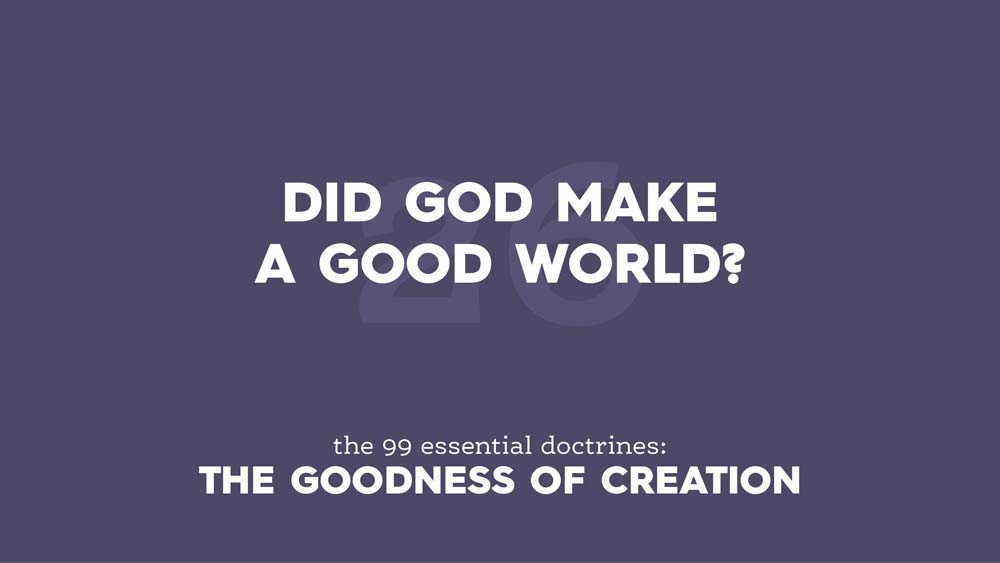Lesson Four: The Goodness of Creation and the Nature of Evil

However, while creation initially reflected God's goodness, it has since been subjected to frustration and decay due to the entrance of sin into the world. Romans 8:20-21 elaborates on this concept, explaining that creation was subjected to frustration, not by its own choice but because of the fall of humanity. This subjection carries with it a sense of longing and hope for liberation from the bondage of corruption. The text reminds us that creation itself groans for restoration, eagerly awaiting the day when it will be set free and fully restored to its original goodness.
The idea that nature reflects God’s goodness is essential in understanding the nature of evil. Evil is not a part of God’s original creation; rather, it is a distortion that emerged through human rebellion and disobedience. Evil does not originate from God, as demonstrated in James 1:17, which states, “Every good and perfect gift is from above, coming down from the Father of the heavenly lights, who does not change like shifting shadows.” This verse affirms that God’s nature is unchanging and is solely aligned with goodness. As such, any semblance of evil is a deviation from His divine purpose and design. The understanding that nature does not sustain evil invites us to recognise that evil is an aberration, a corruption of the good that God intended for His creation. This perspective encourages us to see the world through a lens of hope, understanding that the presence of evil is not an inherent aspect of creation but a result of humanity’s choices. While evil may exist in the world, it does not define creation; instead, it highlights the need for redemption and restoration.
Furthermore, this lesson calls us to action as believers. If God’s creation is fundamentally good, we are called to reflect that goodness in our lives. As stewards of God’s creation, we have a responsibility to advocate for justice, mercy, and compassion in a world often marred by evil and injustice. This involves recognizing the goodness inherent in all of creation and working toward its restoration. Our efforts to combat evil—whether through acts of kindness, speaking out against injustice, or promoting peace—are ways we embody the goodness of God in a world that desperately needs His light.
In conclusion, the fourth lesson emphasizes that nature, in its original state, does not sustain evil because God declared His creation to be good. While sin has introduced frustration and decay, the hope for restoration remains. Creation itself longs for liberation, and as believers, we are called to be agents of that restoration. By embodying goodness and promoting God’s justice, we can make a significant impact in a world challenged by evil. Let us remember that every good and perfect gift comes from God, who does not change, and let us strive to reflect His unchanging goodness in all that we do.

